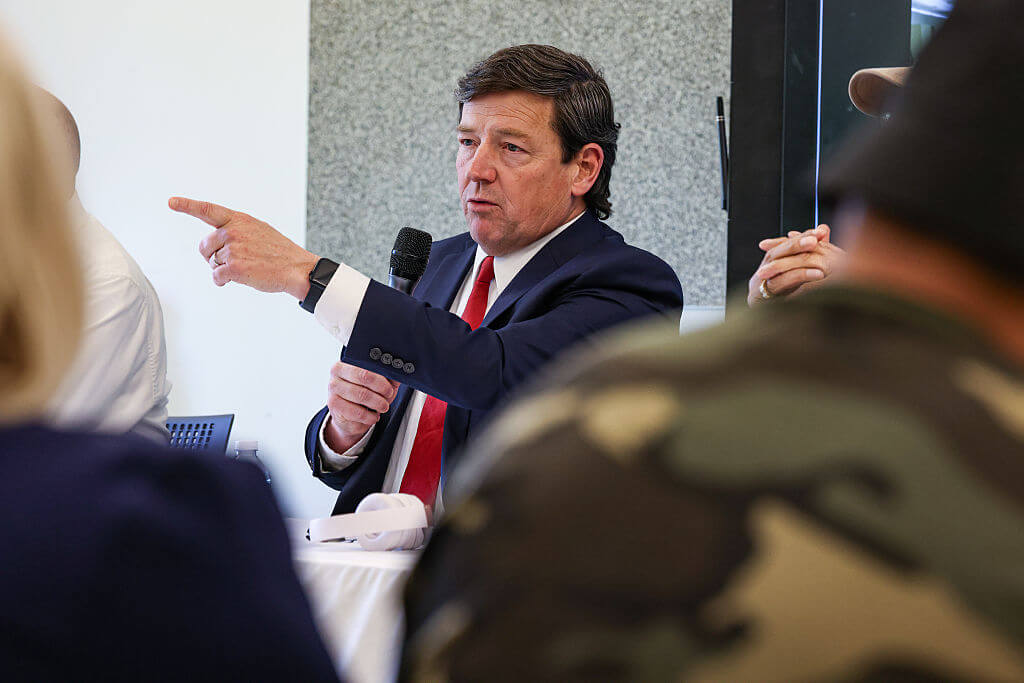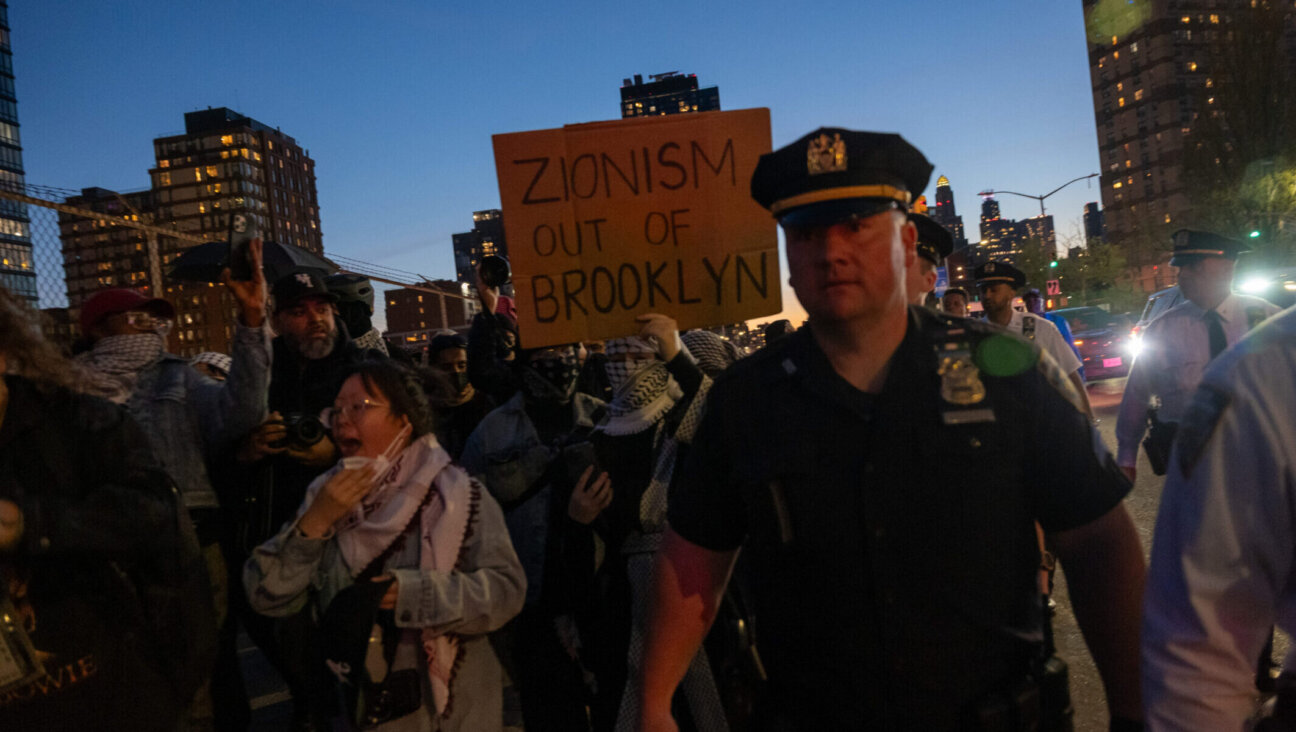Maria Altmann, Recovered Family’s Nazi-Looted Art, Is Dead at 94
Maria Altmann, whose seven-year battle to recover her family’s Nazi-looted paintings riveted the art and legal worlds, has died.
Altmann died at her home in Los Angeles on Feb. 7 at the age of 94 after a prolonged illness
Stripped of her childhood wealth, she became a multi-millionaire in her late eighties, after forcing the Austrian government to return five family-owned works by the Viennese art nouveau painter Gustav Klimt.
Subsequently, the paintings were sold for a total of $327.7 million. The crown jewel was the artist’s iconic “Portrait of Adele Bloch-Bauer,” Altmann’s aunt, which is now on permanent display at Ronald S. Lauder’s Neue Galerie in New York.
Maria Viktoria was born in Vienna in 1916 into a fabulously wealthy family of assimilated Jews, all of whose possessions and art were taken by the Nazi regime after the 1938 annexation of Austria.
In 1999, E. Randol Schoenberg, a young Los Angeles lawyer, took up the seemingly hopeless effort to recover the Klimt painting. He took the case up to the U.S. Supreme Court and in 2006 Austria acceded to his demands.
Finding refuge in Los Angeles after World War II, Altmann supported herself by selling clothes for mature women from her home.
Even after regaining most of her fortune, she continued to live in a modest home in the Cheviot Hills section of Los Angeles and refused to part with her “beloved 1994 Chevy.”
An ardent opera buff. Altmann had little involvement with the Jewish community. In 2005, she said, “Unfortunately, I wasn’t really raised Jewish. My husband, whose family came from Poland, was very strongly Jewish.
“We used to have arguments about that. I agreed to have a ritual circumcision for our sons, if he let me have a Christmas tree.”
Perhaps her closest relationship to the Jewish people, she said, derived from a sense of shared fate.
The Forward is free to read, but it isn’t free to produce

I hope you appreciated this article. Before you go, I’d like to ask you to please support the Forward.
Now more than ever, American Jews need independent news they can trust, with reporting driven by truth, not ideology. We serve you, not any ideological agenda.
At a time when other newsrooms are closing or cutting back, the Forward has removed its paywall and invested additional resources to report on the ground from Israel and around the U.S. on the impact of the war, rising antisemitism and polarized discourse.
This is a great time to support independent Jewish journalism you rely on. Make a gift today!
— Rachel Fishman Feddersen, Publisher and CEO
Support our mission to tell the Jewish story fully and fairly.
Most Popular
- 1
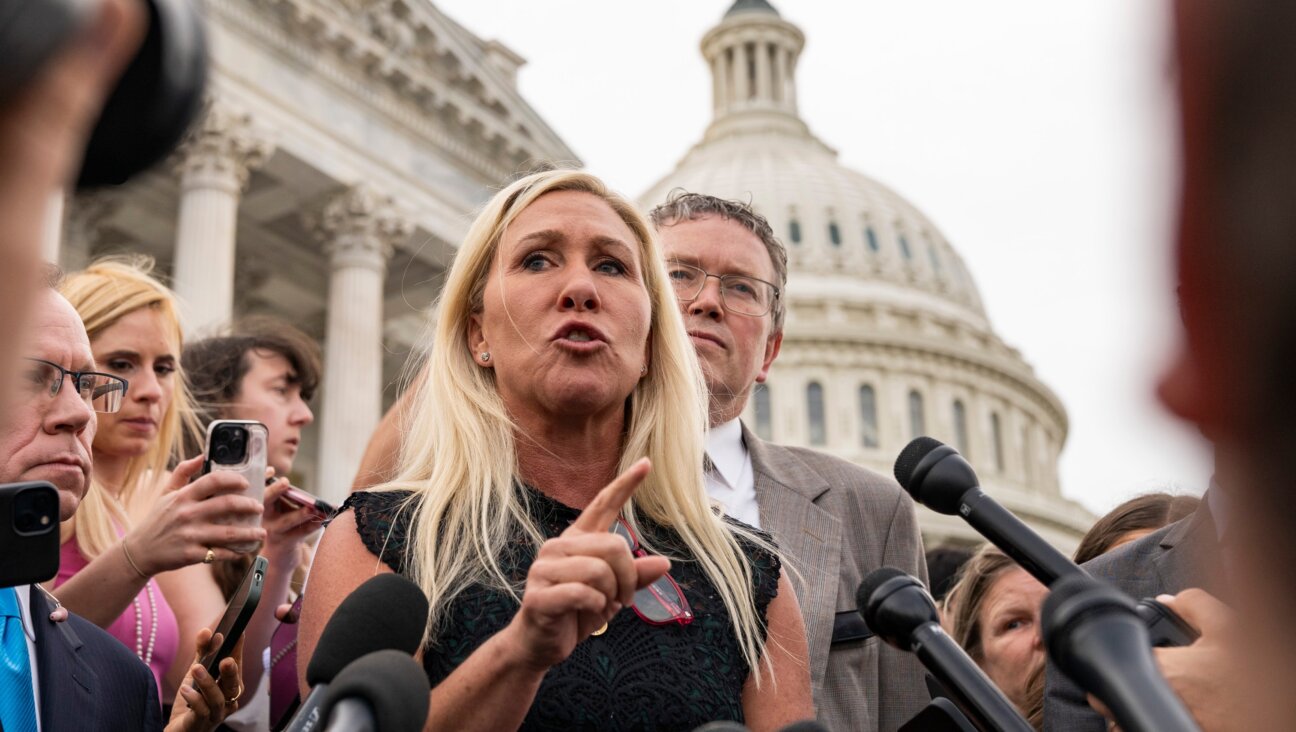
Fast Forward Why the Antisemitism Awareness Act now has a religious liberty clause to protect ‘Jews killed Jesus’ statements
- 2

Culture Trump wants to honor Hannah Arendt in a ‘Garden of American Heroes.’ Is this a joke?
- 3
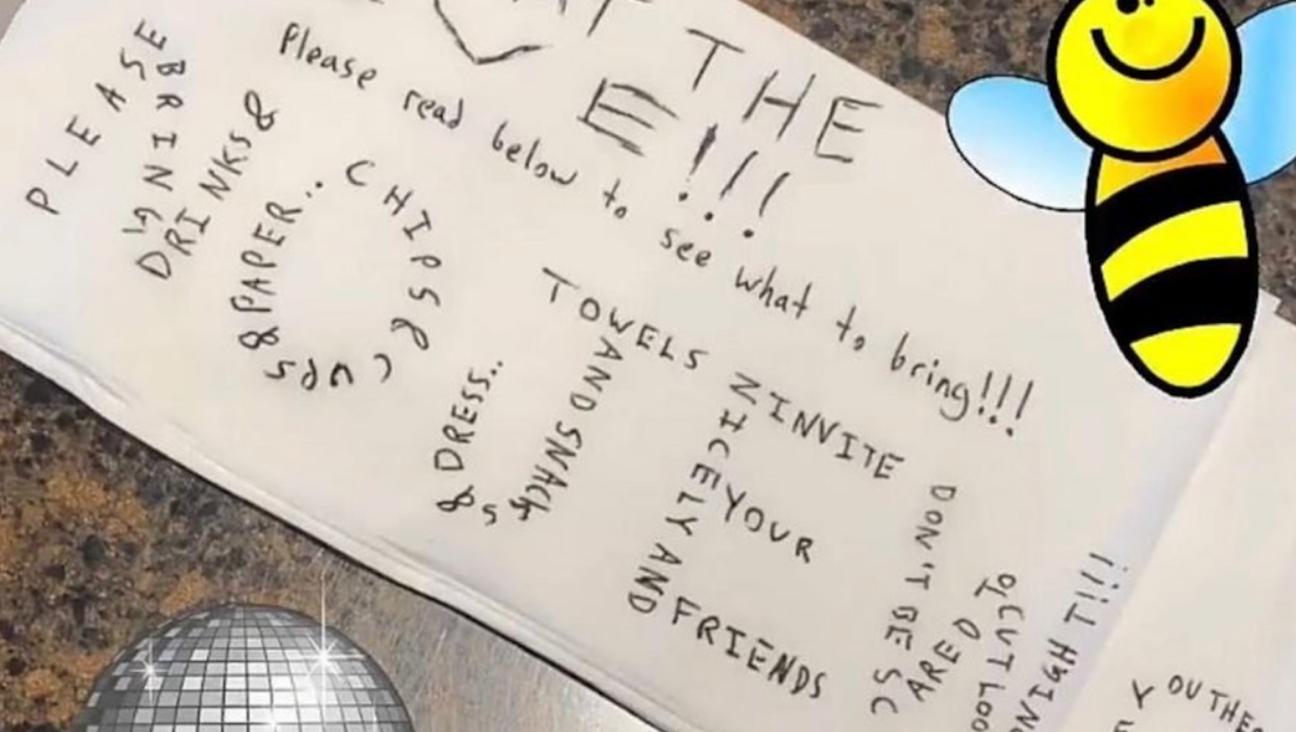
Fast Forward The invitation said, ‘No Jews.’ The response from campus officials, at least, was real.
- 4

Opinion A Holocaust perpetrator was just celebrated on US soil. I think I know why no one objected.
In Case You Missed It
-
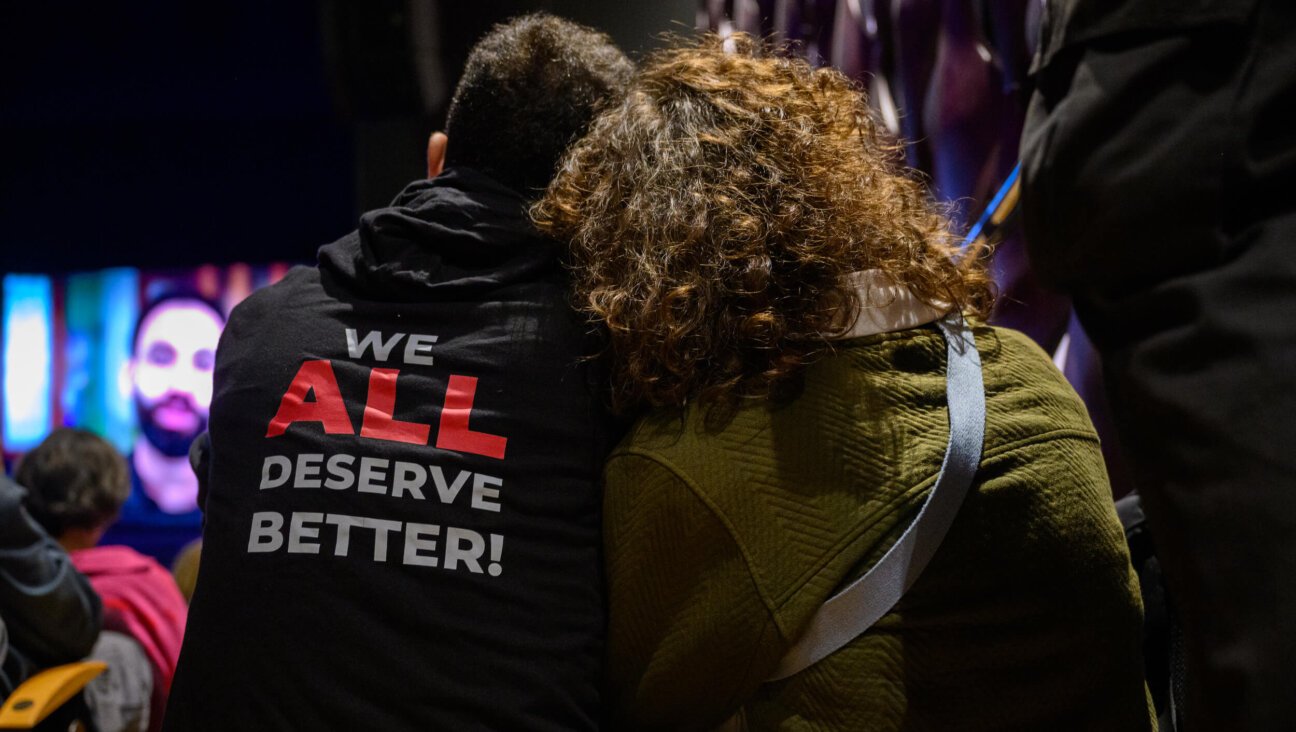
Opinion The secret cost of Israel’s wars ravaged my family. It’s only getting worse
-
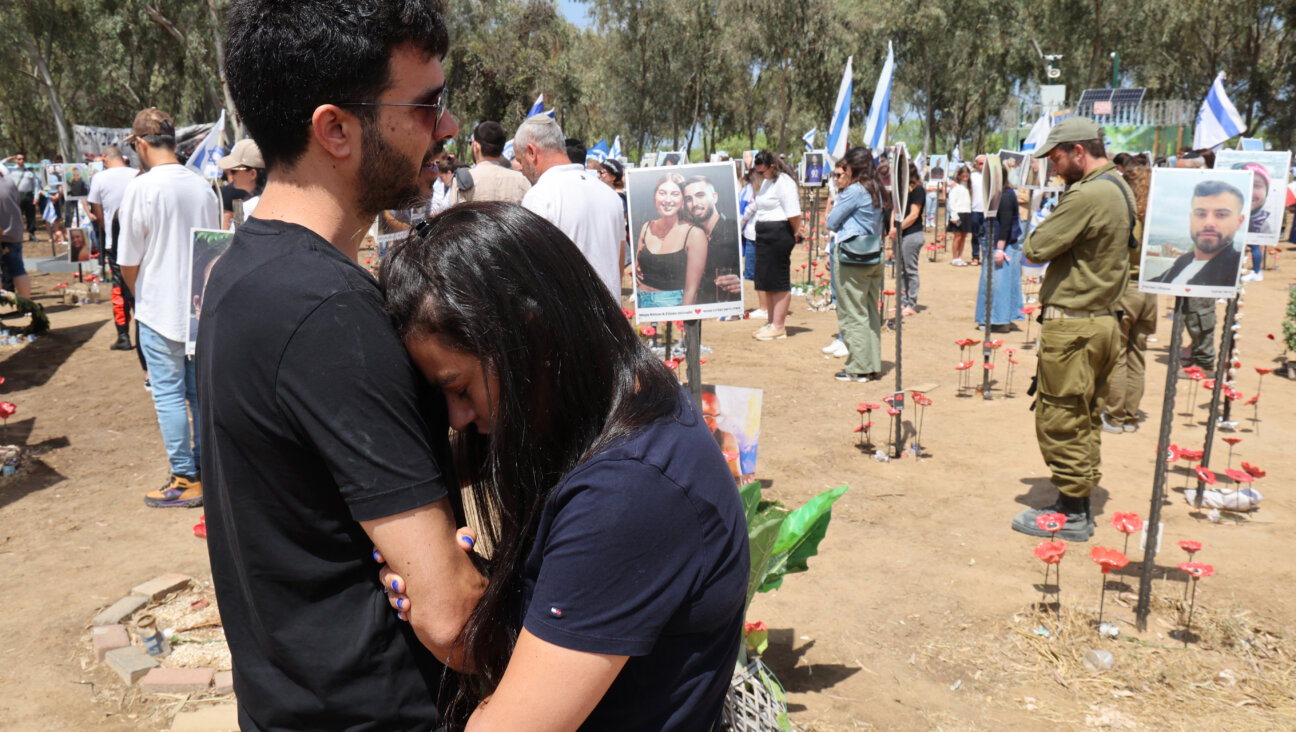
Yiddish מחשבֿות פֿון אַן אַהיים־געקומענעם (אַ מלחמה־טאָגגבוך)Reflections of a soldier after returning home (a wartime diary)
דער מחבר איז אַ סטודענט אינעם ירושלימער העברעיִשן אוניווערסיטעט, אינעם צווייטן יאָר ייִדיש־לימוד
-

Fast Forward Why the Antisemitism Awareness Act now has a religious liberty clause to protect ‘Jews killed Jesus’ statements
-
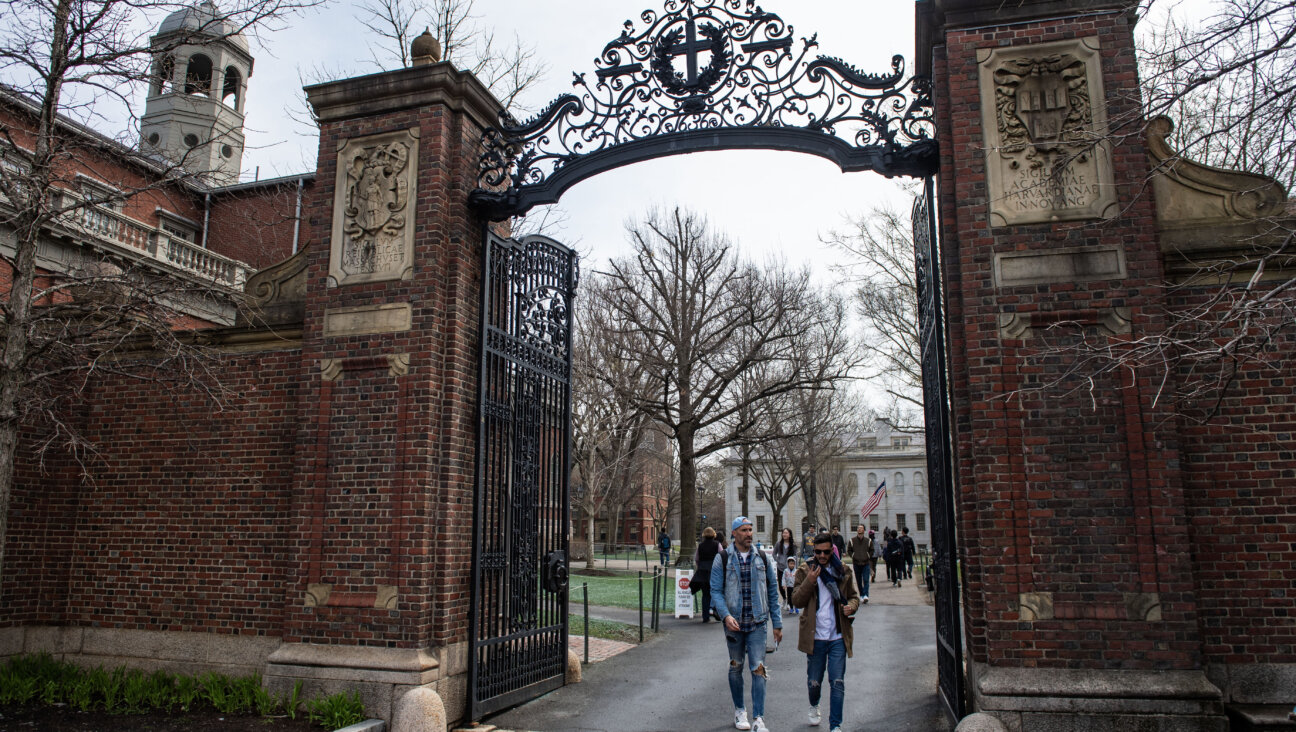
News At Harvard, reports on antisemitism and anti-Palestinian bias reflect campus conflict over Israel
-
Shop the Forward Store
100% of profits support our journalism
Republish This Story
Please read before republishing
We’re happy to make this story available to republish for free, unless it originated with JTA, Haaretz or another publication (as indicated on the article) and as long as you follow our guidelines.
You must comply with the following:
- Credit the Forward
- Retain our pixel
- Preserve our canonical link in Google search
- Add a noindex tag in Google search
See our full guidelines for more information, and this guide for detail about canonical URLs.
To republish, copy the HTML by clicking on the yellow button to the right; it includes our tracking pixel, all paragraph styles and hyperlinks, the author byline and credit to the Forward. It does not include images; to avoid copyright violations, you must add them manually, following our guidelines. Please email us at [email protected], subject line “republish,” with any questions or to let us know what stories you’re picking up.







